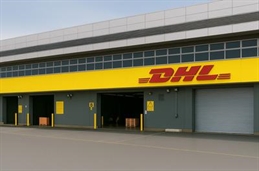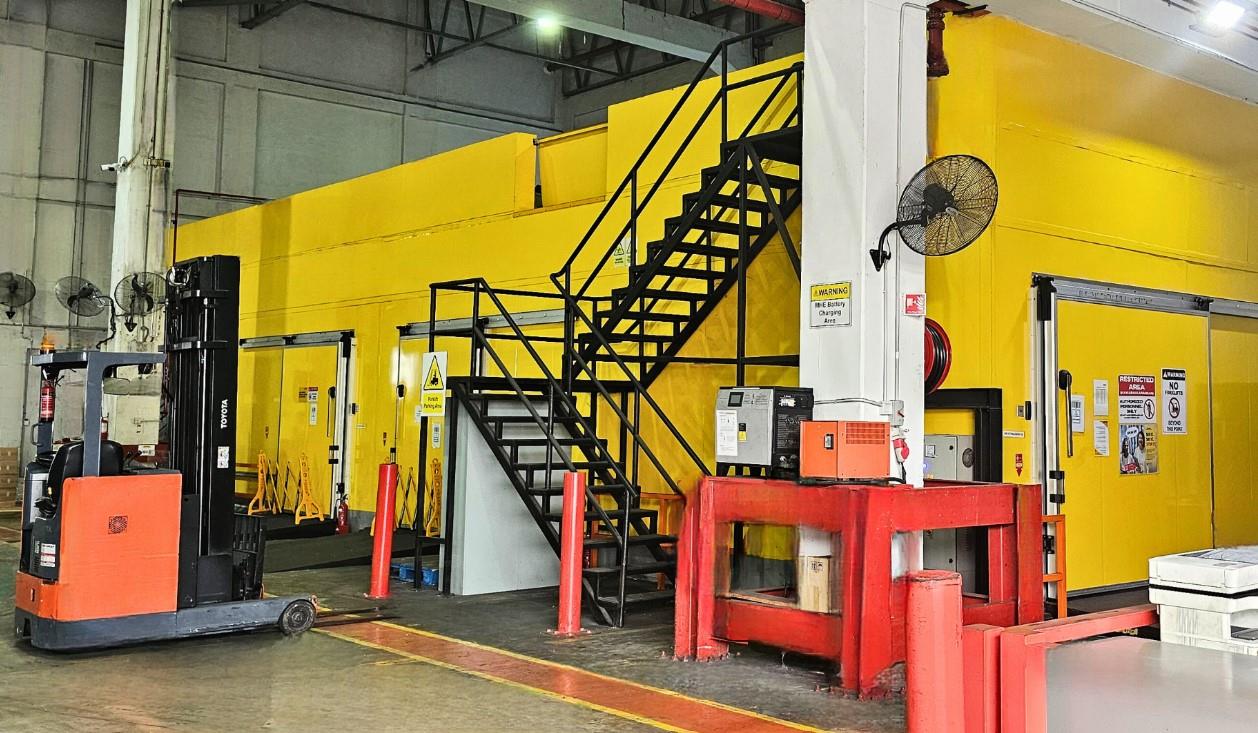
DHL Global Forwarding has launched Malaysia's first dual-temperature certified cold chain facility at Kuala Lumpur International Airport (KLIA), strengthening its pharmaceutical logistics capabilities amid rising demand for temperature-sensitive healthcare shipments.
Located within the KLIA Free Commercial Zone, the 38,000-square-foot facility is certified for both 15–25°C and 2–8°C storage. It holds DHL's Air GxP and IATA CEIV Pharma accreditations, ensuring top-tier regulatory compliance and operational flexibility for Life Science and Healthcare customers across the Asia Pacific region.
Based on the World Health Organization's Good Distribution and Storage Practices, the DHL Air GxP certification is a baseline requirement across all DHL pharma stations to ensure upholding of stringent quality and compliance standards. Complementing this is the IATA CEIV Pharma certification, a globally recognized standard that validates DHL’s capabilities in handling high-value, time- and temperature-sensitive pharmaceutical shipments.
"Malaysia is strategically located to serve as a regional hub for global medical technology companies, and the fast-growing market is expected to increase at a CAGR of 8.5% from 2023 to 2028, reaching a market volume of US$4.5 billion by 2028," said Praveen Gregory, managing director, Singapore, Malaysia and Brunei, DHL Global Forwarding.
"Our cold chain infrastructure in KLIA has consistently delivered high standards in pharmaceutical logistics since its launch in 2023, and as demand across Asia Pacific accelerates, we are ready to lead with best-in-class facilities and expertise to support our customers."

[Source: DHL Global Forwarding]
The facility offers a comprehensive suite of solutions designed to uphold cold chain integrity and meet the diverse needs of pharmaceutical logistics. It features dedicated cold rooms totaling over 1,500 square feet for both 15–25°C and 2–8°C storage, accommodating up to 105 EU pallets. Security is reinforced with dual secure cages spanning 2,400 square feet, equipped with 24/7 CCTV surveillance and restricted access.
The facility is powered by a fully automated Environment Monitoring System (EMS), integrating Testo Saveris and UniBot for real-time temperature tracking with one-year data retention.
Sustainability is embedded through the use of R448A refrigerant, food-grade epoxy flooring, airtight doors, and energy-efficient compressors. Operational excellence is ensured with round-the-clock service, dedicated customs brokerage, and value-added offerings like buyer consolidation, cross-docking, and LD3 container charging. A fully temperature-mapped carve-out zone and a specialized dehumidification system—maintaining relative humidity between 55% and 70%—further enhance its suitability for sensitive pharmaceutical products.
DHL noted that it is also the only forwarder in KLIA offering reefer truck transfers from pick-up to terminal arrival and delivery.
"This service ensures cold chain integrity is maintained throughout the journey and minimizes third-party handling, which in turn reduces turnaround time. It also enhances cargo security and ensures compliance with Good Distribution Practice (GDP) standards," DHL said in the announcement.
Cold-chain shipments at DHL Global Forwarding are managed by a trained team of Life Sciences Specialists, certified to handle temperature-sensitive products in line with industry regulations. Staff receive annual training to stay current with changing standards and customer requirements. DHL’s CLSS program, aligned with IATA guidelines, includes mandatory sessions and functional coursework designed to deepen expertise across its GxP-compliant facilities.
DHL's commitment to green logistics is also evident in the KLIA facility's design. The facility is built using CFC- and HCFC-free materials and is fitted with energy-saving compressors and low-noise, low-emission generators.
The company is also exploring mobile freezer units capable of operating at -20°C, as well as expanding its service portfolio to include frozen commodities such as vaccines, meat, and industrial chemicals.
Fast-growing hub for healthcare logistics
Asia Pacific is rapidly emerging as a global center for pharmaceutical innovation, manufacturing, and distribution. According to an industry trend report by Data Bridge Market Research, the region's healthcare logistics market is forecasted to grow from US$17.6 billion in 2022 to US$29.5 billion by 2030, at a CAGR of 7.1% — driven by aging populations, rising chronic disease prevalence, and increasing demand for biologics, vaccines, and clinical trials.
The DHL Group has identified Life Sciences and Healthcare (LSH) as a key growth sector in its Strategy 2030: Accelerating Sustainable Growth and introduced a new "DHL Health Logistics" sector brand to drive cross-divisional growth.
Earlier this year, DHL Group also announced a €500 million investment in Life Sciences infrastructure across Asia Pacific, including 300,000 square meters of fully compliant storage in 15 countries – a move that reinforces its regional logistics leadership.
Currently, DHL operates 37 Air GxP-certified stations and 12 IATA CEIV Pharma-certified stations in the region, including key hubs in Kuala Lumpur, Singapore, Tokyo, Seoul, Sydney, and Shanghai.



